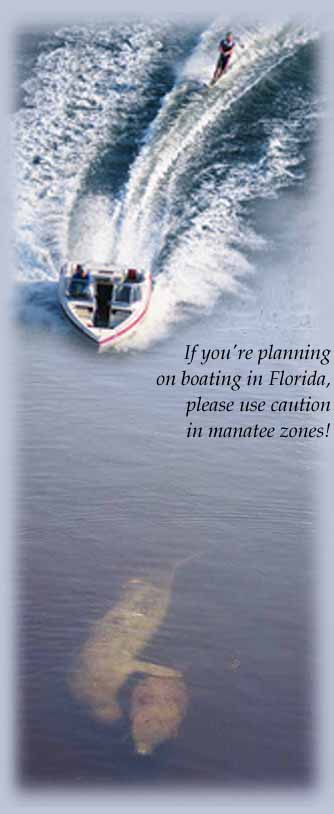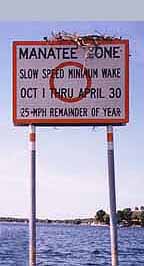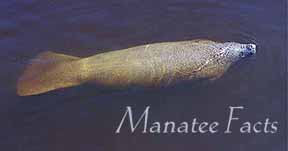
I recognized the swirling, circular patterns in the water instantly. In a few seconds, a walrus-shaped muzzle broke the surface and, just as quickly, disappeared again. I shut-off my three-horse-power outboard and let my canoe drift slowly in the breeze, watching the spot for another appearance of a slow-moving, gentle West Indian Manatee. As I waited, I began to hear a faint thundering sound in the distance. Louder and louder it grew until its source came into view, a 60-foot yacht churning along at full speed, pushing six-foot waves from its massive bow in a long V pattern.. I quickly pulled the cord on my tiny motor, then putted to safety in a small oxbow in the Caloosahatchee River near Alva. From my protected vantage point, I watched as the huge vessel roared over the exact spot I had observed the manatee, oblivious to the endangered marine mammal living below. It was a Saturday, and over the next few hours, I watched as more large yachts, speed boats pulling skiers, jet skis, fishing boats, even a Coast Guard vessel, zipped up and down the river. I didn't feel like I needed anyone to tell me why manatees are on the decline. It was obvious. We're in too big of a hurry, without regard for a creature who was here long before any of us. Any one of those boats could have killed or injured that manatee with their boat propeller or hull. Certainly, we have come a long ways toward saving the manatee, which numbers approximately 2,000 for the coastal and inland waterways of the entire United States. Funds have been raised for public awareness, education, research and lobbying for even more protection. But we're not there yet. Boaters are not the only problem. On average over the last decade, we have lost about 100 manatees a year. In 1996, 151 died. Scientists believe the culprit was a microscopic algae bloom known as Red Tide. It occurs naturally at certain times of the year, but no one seems to know how much of a role pollution and other human activities may play in the frequency and density of the bloom. Cold weather also affects manatees. Like us, they are mammals and if the water they're in is too cold for long periods, they can die from hypothermia.
I realize this all sounds like gloom and doom for the
manatee, but there are things we can do directly to increase this animal's chances for survival. Obviously, those of us who live here and make our living from eco-tourism, want to encourage people to visit and enjoy the "wilder" side of our state. But if we're not responsible stewards of the wildlife and environment, there won't be anything for future generations to enjoy. Here are a few ways in which each of us can appreciate Florida's natural beauty without impacting it greatly:
|



